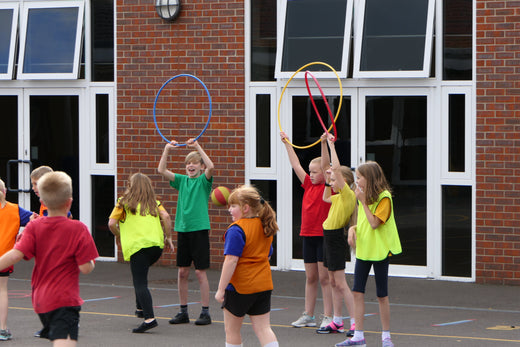The Importance of High Quality PESSPA in School

Firstly, what is PESSPA? PESSPA stands for PE, School Sport and Physical Activity. This relates not only to the PE lessons taught in school but also to any school games events, competitions, sports clubs (before, lunch and after school), break and lunchtime physical activities, enrichment, the daily or active mile and all other opportunities that you as a school provide for pupils to be active. We will touch on these later.
Why is high quality PESSPA important?
In March 2022 Ofsted published a review into physical education (PE) titled A level playing field – all pupils entitled to high-quality PE. Ofsted state that “High-quality PE is an entitlement for all pupils, regardless of their starting points or their prior experiences of sport and physical activity.” Ofsted also states that there are a variety of ways to construct and teach a high-quality PE curriculum.
A study by Bristol University found that “between the ages of six and 11 children became 17 minutes less active a week with every year.” 2,132 children from 57 schools across the South West of England were monitored by researchers between 2012 and 2018. To monitor activity levels pupils wore an accelerometer for 5 days, from the accelerometer researchers could ascertain the number of minutes per day that pupils were involved in moderate to vigorous physical activity (MVPA).
What were the results of this study?
- 61% of Year 1 children did at least an hour of MVPA per day. Only 41% achieved this target by Year 6.
- On average, more than an hour of exercise is lost per week between the ages of 6 and 11, with a greater drop at the weekends.
- Girls showed a marked drop, those completing at least an hour of MVPA per day dropped from 54% to 28% by the time they finished primary school.
- Girls aged 6 were found to engage in less MVPA and more sedentary time on both weekdays and weekends than boys of the same age.
- Girls’ MVPA declined at a faster rate, leading to the gap between boys and girls increasing between ages 6 and 11.
- By age 11, there are differences by BMI group. For example, a child who is obese at the age of 6, and remains so at 11, took part in 10 minutes less MVPA per weekday at age 11 than a similar child of healthy weight at both ages.
According to the National Child Measurement Programme one in four children are obese when they leave primary school.
What does this research mean?
As a collective, we need to improve the access and quality of physical activity opportunities in PE, School Sport and offer more opportunities for physical activity but also inspire a love of physical activity for life. Easy to say but how can we achieve this?
Let’s start with PE, using the pupil voice questionnaire that we sent over before is a great opportunity to get some feedback on your PE curriculum and how you could better engage pupils within PE. At PH ActiveEd we offer the FREE Benchmark and PE Health Checks to support with your school’s Intent, Implementation and evidence the Impact of your PE Curriculum.
School Sport is such a wide catch all phrase, just like Ofsted suggests with the PE curriculum there are several ways to create an amazing School Sport offering in your school. A great way to drive your school sport offering is through the use of sports leaders and/or councils who can support and deliver sport and physical activity opportunities such as delivering lunch and break time games. You can do this by utilising the PlayMaker or Ambassador awards to train your young leaders. The possibilities with these young leaders are endless and we are here to help you with ideas to support the development of your school sport offering.
Finally physical activity, it is our responsibility to encourage all children to participate in at least 30 minutes of physical activity a day at school and inspire a further 30 minutes at home and that is outside of the recommended 2 hours of high quality PE. There are a number of interventions and activites you can implement such as walking/scooting to school challenges, daily/active mile, active lunchtimes, or even physically active lessons such as Maths on the Move.
Our Benchmark and PE Health Checks are here to support you with your planning and implementation of a high quality PESSPA offering. Let’s combat physical inactivity together and allow children to enjoy the holistic benefits that PE, School Sport and Physical Activity bring.
To find out more click here


